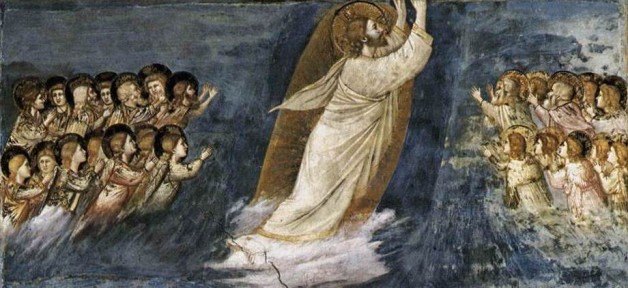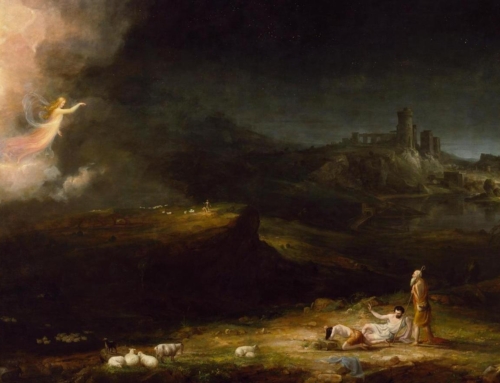And when he had said this, as they were looking on, he was lifted up, and a cloud took him out of their sight.
—Acts 1:9
What are we to make of the Ascension? To some it may seem little more than a neat, miraculous way for Jesus to bid goodbye to His disciples. Pope Emeritus Benedict XVI, however, in his book Jesus of Nazareth, helps us to understand this mystery in a deeper way. In particular, he highlights the importance of a detail we might otherwise regard as insignificant: the presence of the cloud. Benedict calls this “unambiguously theological language” and recalls the instances throughout Scripture when the presence of a cloud marks some great event: the Exodus from Egypt (when Israel was led by a pillar of cloud through the desert), the Tent of Meeting (where Moses often conversed with the Most High, who was concealed in a cloud that filled the dwelling), and the Transfiguration (when the Father’s voice was heard coming from a cloud).
The cloud, then, is a symbol of God’s presence. Jesus’ ascension into it, according to Benedict, does not mean that He was transferred to some “remote region of the cosmos,” but rather that He entered “into the mystery of God.” Christ became incarnate for a specific purpose—to redeem mankind—and to accomplish this purpose it was not necessary that He remain on earth forever in bodily form. He returns to the higher reality whence He came.
St. Gregory of Nazianzus explains in one of his orations that the Blessed Trinity was revealed to us in stages. Men had to be prepared gradually to receive the great mystery that is the Trinity. God was proclaimed Father of His people Israel in the Old Testament. Then Christ the Word was manifested in the New Testament. Since every word conveys knowledge, Christ the Word brought knowledge of the person of the Father and revealed to mankind the inner life of God. But God wanted to share with us more than mere knowledge of Himself. He wanted to share His very life with us. And, for this, the Ascension prepared the way.
Christ ascended into heaven in order that the Holy Spirit, who is the mutual Love between the Father and the Son, would come and draw us into the life of divine love. The Holy Spirit is the impulse or inclination of the Father towards the Son and the Son towards the Father. Through grace, this impulse of Love dwells in us by the gift of charity. This participation in the life of the Trinity means that Christ is nearer to us now than He would be if He had remained on earth to walk among us in bodily form. It’s no wonder, then, as Pope Benedict says, that the disciples returned to Jerusalem after the Ascension “with great joy, and were continually in the Temple blessing God” (Lk 24:52–53).
✠







